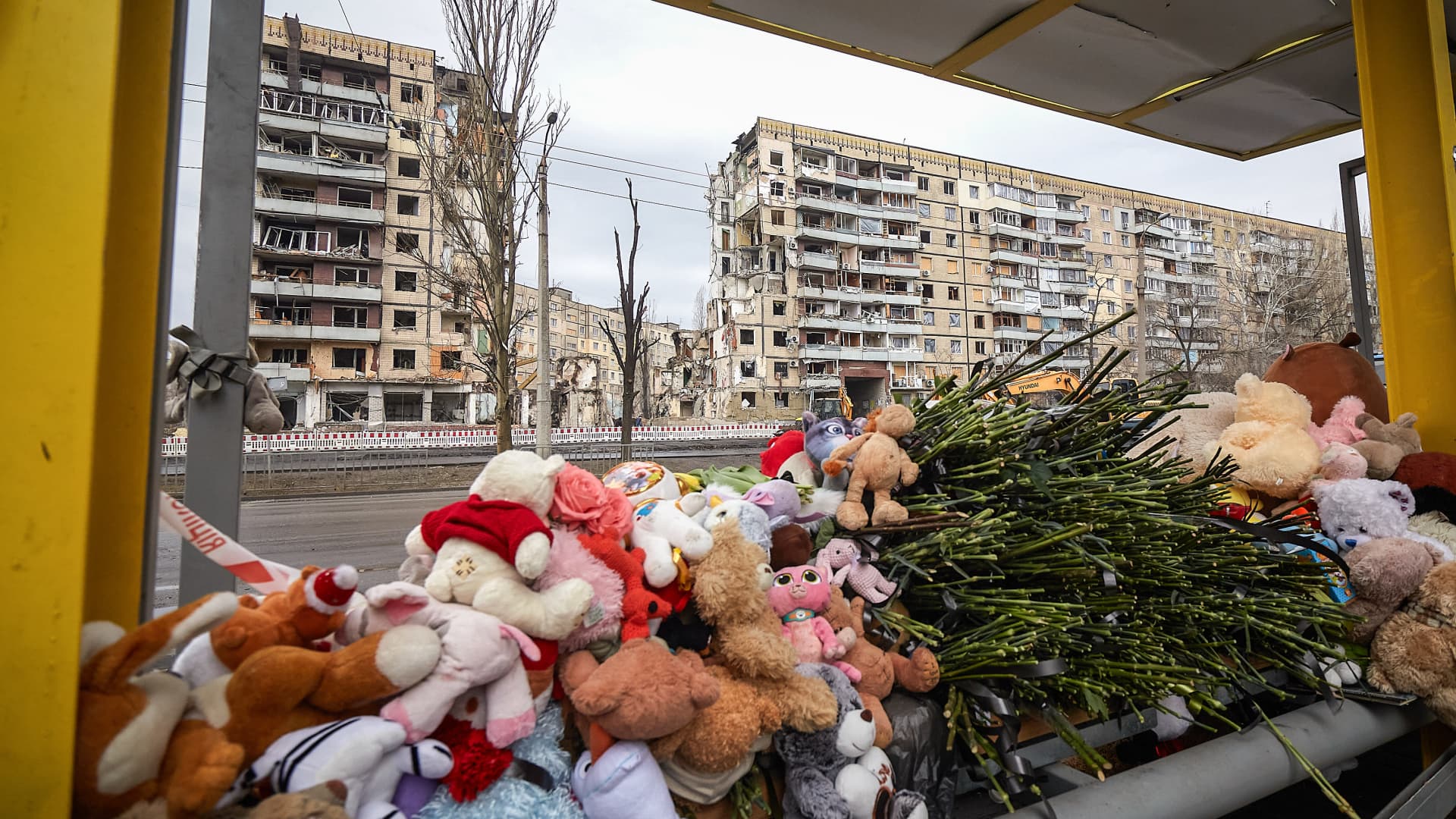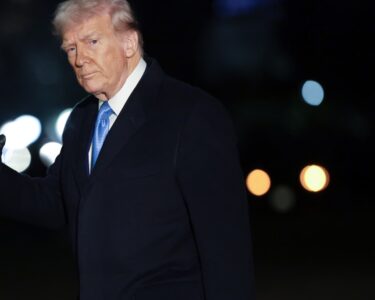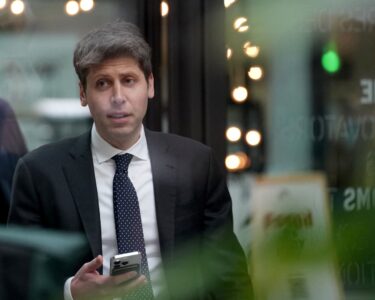This has been CNBC’s live blog covering updates on the war in Ukraine. [Follow the latest updates here.]
Russia’s security service, the FSB, said Thursday that it has detained a reporter with the U.S. newspaper The Wall Street Journal.
The reporter, Evan Gershkovich, was detained in Yekaterinburg on suspicion of espionage, the FSB said in a statement Thursday.
The FSB claimed Gershkovich was “acting on instructions from the American side” and alleged that the reporter “was collecting information constituting a state secret about the activities of one of the enterprises of the military-industrial complex of Russia.” It provided no evidence to support the allegations.
Russia has a long reputation of harassing journalists and has detained a number of foreigners on spying charges, with the reasons for the detentions (and, in some cases, prosecutions) often spurious and politically motivated.
The WSJ said it was “deeply concerned for the safety of Mr. Gershkovich.”
Turkey’s parliament voted unanimously to formally approve Finland’s membership to NATO on Thursday, marking a historic step for the traditionally nonaligned Nordic country that shares an 830-mile border with Russia.
The vote follows a months-long saga that saw Turkey demand certain concessions from Finland and its neighbor Sweden, both of whom applied to NATO in May 2022 in the wake of Russia’s invasion of Ukraine. Joining NATO requires unanimous approval from all member states. Ankara’s vote late on Thursday marked Finland’s clearing of its final hurdle in the accession process.
Turkey and Hungary remained the final holdouts standing in the way of the Nordic states’ accession to the 74-year old alliance. Ankara has yet to approve of Sweden’s membership bid, while Hungary — whose Prime Minister Viktor Orban has been on friendly terms with Russian leader Vladimir Putin — has approved Finland’s accession, but not Sweden’s.
— Natasha Turak
The White House said it has new evidence that Russia is looking again to North Korea for weapons to fuel the war in Ukraine, this time in a deal that would provide Pyongyang with needed food and other commodities in return.
It’s the latest accusation that Russia, desperate for weaponry and restricted by sanctions and export controls, is turning to “rogue” nations to help it continue to prosecute the 13-month-old war.
“As part of this proposed deal, Russia would receive over two dozen kinds of weapons and munitions from Pyongyang,” White House National Security Council spokesman John Kirby said. “We also understand that Russia is seeking to send a delegation to North Korea and that Russia is offering North Korea food in exchange for munitions.”
The administration has previously declassified intelligence to present evidence that Iran sold hundreds of attack drones to Russia over the summer and that the Wagner Group, a private Russian military company, has taken delivery of arms from North Korea to help bolster its forces as they fight side-by-side with Russian troops in Ukraine.
— Associated Press
A look inside a rehabilitation center for Ukrainian soldiers in eastern Ukraine.
— Diego Herrera Carcedo | Anadolu Agency | Getty Images
Secretary of State Antony Blinken said the U.S. State Department is seeking immediate consular access to detained U.S. citizen and Wall Street Journal reporter Evan Gershkovich.
“In the strongest possible terms, we condemn the Kremlin’s continued attempts to intimidate, repress and punish journalists and civil society voices,” Blinken said in a statement. “The Department of State’s highest priority is the safety and security of U.S. citizens abroad,” he said.
“The targeting of American citizens by the Russian government is unacceptable,” Blinken said, adding that the State Department is in contact with the Wall Street Journal.
— Amanda Macias
The White House said that President Joe Biden was briefed on the detention of Wall Street Journal reporter Evan Gershkovich and that senior Biden administration officials have spoken to his family.
“Our embassy in Moscow has engaged the Russian Ministry of Foreign Affairs. They are seeking consular access,” National security council spokesman John Kirby told reporters on a conference call.
“I want to just take this moment while I can to reiterate what we have said many times before and that’s that Americans should please heed the U.S. government’s warning not to travel to Russia. U.S. citizens residing or traveling in Russia should depart right away,” he added.
— Amanda Macias
Ukraine’s Prosecutor General Andriy Kostin said that nearly 500 children have died during Russia’s war on his country.
Kostin added on his official Telegram channel that another 943 children have received injuries “of varying degrees of severity.”
Throughout the war, the prosecutor general and outside investigators have highlighted a range of allegations of violence against and forced relocations of Ukrainian children by Russia. Last month, Kostin said that his field offices across Ukraine have documented more than 14,000 Ukrainian children forced into adoption in Russia.
“This is a direct policy aimed at demographic change by cutting out Ukrainian identity,” Kostin said during remarks at the Georgetown Law School in Washington.
“These actions are characteristics of the crime of genocide,” he added.
— Amanda Macias
Ukrainian President Volodymyr Zelenskyy met with a delegation from the German defense manufacturer Rheinmetall.
“The current state of our cooperation and prospects for its development were discussed in detail. It is necessary to further deepen the partnership in order to meet both the urgent needs of the defense forces of Ukraine and to significantly strengthen the defense capabilities of our country in the future,” Zelenskyy wrote on his official Telegram channel, according to an NBC News translation.
“I am grateful to Germany’s leading defense company, as well as to the entire German people for their comprehensive assistance and support to Ukraine. We appreciate this important help in our struggle for freedom and democratic values,” he added.
German newspaper Rheinische Post reported earlier this month that Rheinmetall’s CEO Armin Papperger said that the company is considering building a tank factory in Ukraine.
Rheinmetall is a joint defense contractor on Leopard tanks with Krauss-Maffei Wegmann, another German defense manufacturer.
— Amanda Macias
Russian Foreign Ministry spokeswoman Maria Zakharova said that the public would have an opportunity to verify Moscow’s claim that a U.S. reporter detained on espionage charges had been engaged in activities unrelated to journalism.
“Relevant statements have been made through our security services… I think (they) will also provide it publicly, and you will have an opportunity to verify it,” Zakharova said in a briefing.
A Moscow court ruled earlier that U.S. national Evan Gershkovich would be detained for nearly two months on suspicion of spying for Washington, the most serious move against a foreign journalist since Russia invaded Ukraine.
— Reuters
Ukraine’s top diplomat panned Russia’s upcoming chairmanship of the United Nations Security Council, which starts Saturday.
“Russian U.N. Security Council presidency on April 1 is a bad joke,” Ukraine’s Foreign Minister Dmytro Kuleba wrote on Twitter.
“Russia has usurped its seat; it’s waging a colonial war; its leader is a war criminal wanted by the ICC for kidnapping children. The world can’t be a safe place with Russia at UNSC,” Kuleba added.
Russia’s U.N. Ambassador Vassily Nebenzia will take the rotating presidency of the Security Council in April for one month.
Russia is a permanent member of the U.N. Security Council and holds veto authority on any measure proposed before the international forum. According to the U.N. charter, the primary responsibility of the Security Council is the maintenance of international peace and security.
The scheduled presidency follows the International Criminal Court’s decision to issue an arrest warrant for Russian President Vladimir Putin over alleged war crimes committed during his invasion of Ukraine. The warrant is the first time the ICC, a body of the United Nations, has taken such a measure against a leader whose country is a permanent member of the Security Council.
— Amanda Macias
A Russian court decided that Wall Street Journal reporter Evan Gershkovich will remain in detention until May 29, according to a report from Interfax translated by NBC News.
State-owned news outlet RIA Novosti reported that the court session on Gershkovich’s arrest was held behind closed doors because the case is marked as “top secret.” Another state media source TASS reported that Gershkovich did not admit guilt, according to an NBC News translation.
Earlier on Thursday, Russian Foreign Ministry spokeswoman Maria Zakharova claimed that Gershkovich was arrested for espionage and his activities in Moscow were “not related to journalism.”
The Wall Street Journal said it “vehemently denies” the allegations made by Russia’s security service against Gershkovich. The newspaper also said it was concerned about his safety.
— Amanda Macias
Two ships carrying 62,500 metric tons of agricultural products left Ukraine’s ports of Odesa and Chornomorsk.
The vessels are destined for Italy and Spain and are carrying corn.
The Black Sea Grain Initiative, a deal brokered in July among Ukraine, Russia, Turkey and the United Nations, eased Russia’s naval blockade and saw three key Ukrainian ports reopen. Ukraine and the UN pushed for a 120-day extension of the deal in March, but Russia agreed to only 60 days, which would expire in May.
So far, more than 700 ships have sailed from Ukrainian ports since the deal began.
Correction: This post has been updated to correct the extension terms of the Black Sea Grain Initiative.
— Amanda Macias
The Kremlin claimed a Wall Street Journal reporter detained by Russia’s security service over spying allegations had been caught “red-handed,” but offered no further detail on the situation.
When asked how the Kremlin assessed the incident — which saw WSJ reporter Evan Gershkovich detained in Yekaterinburg by the FSB — Kremlin spokesperson Dimitry Peskov told reporters that it was up to the security service how to proceed and whether to share information with the U.S. authorities.
“This is the prerogative of the FSB. There has already been a statement from them, we have nothing to add here,” he said, adding: “The only thing I can add is that as far as we know, he was caught ‘red-handed’,” without providing further details or evidence.
Asked to elaborate on what he meant by “red-handed,” Peskov said “I don’t know the details. This is the prerogative of the special services, which are fighting spies.”
Asked what could happen to the WSJ bureau in Russia and whether journalists there could be deported, Peskov said “no, those who carry out normal journalistic activities — of course, if they have a valid accreditation, they will continue to work. There will be no problems with them.”
The FSB said earlier Thursday that it had detained Gershkovich on suspicion of espionage, claiming the U.S. citizen was “acting on instructions from the American side” and was “collecting information constituting a state secret about the activities of one of the enterprises of the military-industrial complex of Russia.” It provided no evidence to support the allegations.
The Wall Street Journal said it “vehemently denies” the allegations and demanded Gershkovich’s release, calling him a “trusted and dedicated reporter.”
Russia has a poor reputation when it comes to its treatment of journalists undertaking investigative work or those who do not toe the Kremlin line.
— Holly Ellyatt
The Wall Street Journal said it “vehemently denies” the allegations made by Russia’s security service after the FSB detained one of the newspaper’s reporters, Evan Gershkovich, alleging that he had been spying at the behest of the U.S.
“The Wall Street Journal vehemently denies the allegations from the FSB and seeks the immediate release of our trusted and dedicated reporter, Evan Gershkovich. We stand in solidarity with Evan and his family,” the Wall Street Journal said in a statement released to the media.
The FSB said earlier Thursday that it had detained Gershkovich on suspicion of espionage, claiming the U.S. citizen was “acting on instructions from the American side” and was “collecting information constituting a state secret about the activities of one of the enterprises of the military-industrial complex of Russia.”
It provided no evidence to support the allegations.
— Holly Ellyatt, Ruxandra Iordache
Russian Foreign Ministry spokeswoman Maria Zakharova claimed Thursday that the activities of the detained Wall Street Journal reporter Evan Gershkovich were “not related to journalism.”
“What an employee of the American edition of The Wall Street Journal was doing in Yekaterinburg has nothing to do with journalism,” Zakharova said on Telegram, in comments translated by Google.
“Unfortunately, this is not the first time that the status of a ‘foreign correspondent,’ a journalistic visa and accreditation are used by foreigners in our country to cover up activities that are not journalism,” she said, adding that “this is not the first well-known Westerner to be ‘grabbed by the hand.'”
Russia’s security service, the FSB, said Thursday that it had detained Gershkovich in the Urals city of Yekaterinburg, alleging that he had been “acting on instructions from the American side” and “was collecting information constituting a state secret about the activities of one of the enterprises of the military-industrial complex of Russia.”
It provided no evidence to back up its allegations. Russia is a hostile environment for journalists to operate independently in, with anyone doing so risking falling foul of the authorities. A number of journalists have been detained, disappeared or have died in suspicious circumstances in Russia.
Russia ranks 155th out of 180 countries assessed in the Reporters Without Borders’ Press Freedom Index last year, putting it on the index’s red list, indicating a “very bad” press freedom situation in the country.
— Holly Ellyatt
Russia’s security service, the FSB, said it had detained a reporter with the U.S. newspaper The Wall Street Journal.
The reporter, Evan Gershkovich, was detained in the Urals city of Yekaterinburg on suspicion of espionage, the FSB said in a statement Thursday.
Russia has a long-standing reputation of harassing journalists and has detained a number of foreigners on spying charges, with the reasons for the detentions (and, in some cases, prosecutions) often spurious and politically motivated.
The FSB said it had “stopped the illegal activities of the correspondent of the Moscow bureau of The Wall Street Journal, an American Gershkovich Evan born in 1991, accredited at the Russian Foreign Ministry, who is suspected of spying for the U.S. government.”
The FSB claimed that Gershkovich was “acting on instructions from the American side” and alleged that the reporter “was collecting information constituting a state secret about the activities of one of the enterprises of the military-industrial complex of Russia.”
“While trying to obtain secret information, a foreigner was detained in Yekaterinburg,” the FSB said, providing no evidence for its allegation.
CNBC has requested comment and is awaiting a response.
“The Wall Street Journal is deeply concerned for the safety of Mr. Gershkovich,” the publication said in a statement.
— Holly Ellyatt, Ruxandra Iordache
Russian media reporting suggests that the authorities are preparing to start a major military recruitment campaign with the aim of signing up an additional 400,000 troops, Britain’s Defense Ministry said Thursday.
“Russia is presenting the campaign as a drive for volunteer, professional personnel, rather than a new, mandatory mobilisation,” the ministry noted.
There is a “realistic possibility” that in practice this distinction will be blurred, the U.K. said, and that regional authorities will try to meet their allocated recruitment targets “by coercing men to join up.”
“Russian authorities have likely selected a supposedly ‘volunteer model’ to meet their personnel shortfall in order to minimise domestic dissent.”
It is highly unlikely that the campaign will attract 400,000 genuine volunteers, the defense ministry said, adding that that “rebuilding Russia’s combat power in Ukraine will require more than just personnel; Russia needs more munitions and military equipment supplies than it currently has available.”
Last September, Russian President Vladimir Putin announced a “partial mobilization” in which 300,000 military reservists were called into active service. He also called for a boost to weapons production.
Since then, Russia’s Defense Ministry has announced its intentions to expand its forces in the next few years. Defense Minister Sergei Shoigu in December laid out proposals to increase military personnel to 1.5 million by 2026, up from 1.1 million at present.
— Holly Ellyatt
Russian forces in Bakhmut — made up predominantly of mercenaries belonging to the Wagner Group — have made no progress into the city in the last three weeks and are suffering significant losses, the chairman of the Joint Chiefs of Staff, Mark Milley, told U.S. lawmakers Wednesday.
Milley said the so-called “battle of Bakhmut,” which has been raging for over seven months now, has turned into a highly attritional battle for the Russians, despite their claims of recent gains in the city.
“The Ukrainians are doing a very effective area defense that is proven to be very costly to the Russians. For about the last 20, 21 days, the Russians have not made any progress whatsoever in and around Bakhmut,” he said at a House Armed Services Committee hearing.
“So it’s a slaughter-fest for the Russians. They’re getting hammered in the vicinity of Bakhmut and the Ukrainians have fought very, very well. That’s also true across the entire frontline,” he added.
Milley said he believes there are around 5,000-6,000 Wagner Group mercenary fighters in eastern Ukraine, with up to 30,000 other recruits, many of whom are Russian prisoners offered a deal, which allows their sentences to be commuted if they serve in the Wagner forces for six months.
Milley said the Russian units fighting around Bakhmut are struggling with command and control, logistics and sustainment and are largely poorly trained. Nevertheless, he said the Wagner Group is well funded, has reach in Russia, parts of Europe, the Middle East and Africa, and is “very dangerous.”
— Holly Ellyatt
Rebuilding Ukraine is the most ambitious project of the 21st century, that country’s prime minister was quoted as saying by Ukraine’s government portal.
Since invading Ukraine in February 2022, Russian troops have largely destroyed several Ukrainian cities. Moscow has also intentionally targeted Ukraine’s energy grids and other civilian infrastructure.
Rebuilding will require “huge resources,” Denys Shmyhal said in an online address at a conference. He spoke to more than 200 industry representatives from the EU and Ukraine. The Ukraine government portal did not quantify what rebuilding would cost.
Business will be the “engine of change” to rebuild Ukraine’s economy, said Shmyal. Ukraine’s most promising sectors are energy, defense, agriculture, natural resources and IT, he said.
The U.S. International Development Finance Corporation has announced its readiness to mobilize more than $1 billion in private capital to support Ukraine’s economy, he added.
— Audrey Wan
Ukrainian President Volodymyr Zelenskyy said Russia has “been at war” with democracy for years.
“It fights via disinformation, election interference, espionage, corruption exporting, cybercrime, by trying to trigger an energy crisis and price explosions in markets that will hit your people with insane electricity or gas bills,” he said at a democracy summit hosted by U.S. President Joe Biden, according to his office.
Biden and other Western leaders have provided Ukraine with weapons and financial aid, and have slapped rounds of sanctions on Russia, since Moscow invaded its neighbor about 13 months ago. Zelenskyy said “evil must lose the war” because then “it will know that it will always lose everywhere.”
The Ukrainian president said the globe should not “think how to save Putin’s face” in trying to end the war. He also called on his allies to provide “all the weapons that will reliably guarantee” Russia’s defeat.
— Jacob Pramuk
Hungary is holding up Sweden’s admission to NATO because of grievances over criticism by Stockholm of Prime Minister Viktor Orban’s policies, the Hungarian government spokesman said.
Bridging the gap will require effort on both sides, spokesman Zoltan Kovacs said.
Sweden and its neighbour Finland asked to join the NATO military alliance last year following Russia’s invasion of Ukraine. But the process has been held up by Hungary and Turkey.
After months of foot-dragging by Orban’s ruling Fidesz party, Hungary’s parliament approved a bill on Monday to allow Finland to join NATO but the Swedish bill is still stranded.
“In the case of Sweden, there is an ample amount of grievances that need to be addressed before the country’s admission is ratified,” Kovacs said on his blog.
— Reuters
The head of the Wagner Group — a private military company whose mercenaries have been involved in heavy, intense fighting to try to capture Bakhmut in eastern Ukraine — said Wednesday that the battle for the town has taken a large toll on both sides.
“At the moment, the battle for Bakhmut has almost destroyed the Ukrainian army, and unfortunately rather battered PMC Wagner,” Yevgeny Prigozhin said on his business’ Telegram channel.
He said that if his Wagner units “win” in Bakhmut, against Ukraine’s armed forces and what he described as “foreign units” without elaborating further, Prigozhin said it would represent “the greatest turn in this war and in all modern history.”
“PMC Wagner destroys foreign forces that are trying to bring Russia to its knees. And after that, only the Russian army will remain on the chessboard, and all other pieces will be removed,” he said.
Prigozhin’s Wagner Group has been fighting to try to capture Bakhmut for over seven months, meeting stiff resistance from Ukraine’s fighters trying to hold on to the city. Capturing Bakhmut is seen as a stepping stone for Russians trying to extend their hold on Donetsk in eastern Ukraine.
— Holly Ellyatt
Defense officials in the U.K. have disputed Russian claims to have taken control of a metals plant in Bakhmut in eastern Ukraine.
A Russian-installed official in Donetsk, where Bakhmut is located, claimed on Wednesday that fighters from the Russian private military company, the Wagner Group, had taken full control of the Azom factory complex to the north of the Bakhmut town center.
But the British Defense Ministry said Wednesday that “the area likely remains contested, as it has been for the past fortnight” and that the Wagner Group, made up of mercenary fighters and Russian prisoners recruited to fight for six months in exchange for freedom, was losing personnel.
“With Wagner having now confirmed the release of at least 5000 prisoner fighters, personnel shortages are likely hampering Russian offensive efforts in the sector,” the ministry noted in an intelligence update.
The ministry noted that fighting continues in the Donbas town of Bakhmut, though Russian assaults are still at a reduced level compared with recent weeks.
“One of the key achievements of recent Ukrainian operations has likely been to push Russian Wagner Group fighters back from the 0506 route,” referring to one of the few remaining supply routes into the city.
“This minor country road has become a critical supply line for Ukrainian defenders. Wagner had previously been within a few hundred metres of the route,” the ministry said.
— Holly Ellyatt
Mercenary boss says fighting in Bakhmut is battering both sides; Russia tests intercontinental ballistic missiles






